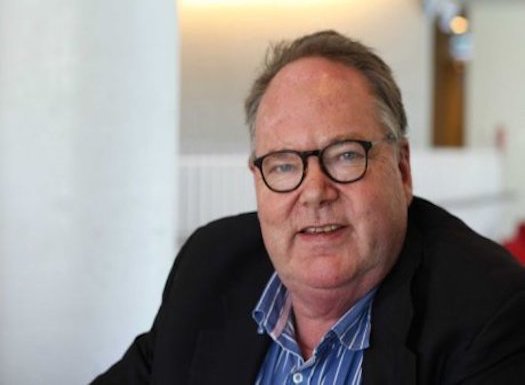“Journalists in future will not be able to make money on 3 or 4 par news stories, but there will always be a market for things that explain and investigate.”
This week, Mark Colvin celebrates 15 years as the host of PM.
He started at the ABC in 1974 and worked his way up to foreign correspondent, covering many of the major international events of the late 20th century. On a trip to Zaire and Rwanda to cover the Hutu-Tutsi massacres, Colvin contracted a life-threatening disease and almost died.
Marking the occasion of 15 years at the helm of one of ABC Radio’s flagship current affairs programs, he shared his thoughts about journalism and interviewing with Richard Fidler on Conversations.
Colvin’s father, who was a spy, kept secrets all his life, but his son’s job, as a journalist, is revealing secrets. “Journalism and spying have things in common, we were in the same business in some ways… spies dig up secrets for a small audience and [journalists dig up] secrets for a big audience… and shout them from the roof tops,” Colvin told Fidler.
Commenting on the nature of news, Colvin passed on some good advice he was given as a young cadet: “News is the things you see in your life, not just things that are handed to you… There’s no question you can’t ask… you should ask things that will make the interviewee think most.”
A good interview is a balance between information, education and show business, according to Colvin. “You don’t want to bore people, there has to be an element of razzle dazzle in there. Develop a sense of rhythm and know when to interrupt…”
One of the key things for Colvin is to listen to what his interviewees have to say. The best questions are often simple ones such as ‘why,’ ‘how’ or ‘but’ and are a result of listening and responding to the interviewee. “If you dig deeply into a subject you will find something of interest in it.”
Colvin lamented the loss of journalist jobs and the fast pace of the news cycle. “Nobody has time to think and ponder what is the significance of this story any more…”
He also criticised the trend for interviewees to be media trained. “It’s incredibly frustrating, but you have to try and get beyond it… some of the best interviews are when I just kept asking, politely, the same question.”
Spending around 15 hours a week hooked up to a dialysis machine, Colvin has had time to become an avid user of Twitter, building up 28,000 followers to @Colvinius.
He began on twitter in 2009 when in hospital. He got bored and experimented with Twitter just months before the Iran election, and found what an important resource it could be for journos putting together a story. “You could see every angle in the tweets from every side of the square and follow the story.”
Twitter is a story telling device which is also highly valuable for fact dissemination and fact gathering. “You must eliminate those who are too strident or biased and triangulate those who are reliable,” is Colvin’s advice.
He does not see Twitter as a new form of journalism, but does think it is an “enormous addition” to old journalism. “You still need to use the old intellectual journalism skills, and must match what you are hearing on social media with what you are hearing on wires and elsewhere.”
One of the things about Twitter is the “serendipitous nature of it,” where things turn up that you might never find otherwise.
Colvin tries to use approach his Twitter account in the same way as his ABC Radio programs, recognising the ABC’s “responsibility to reflect all political persuasions… we have a duty to reflect all views.”
Click below to hear Mark Colvin in Conversation with Richard Fidler.

